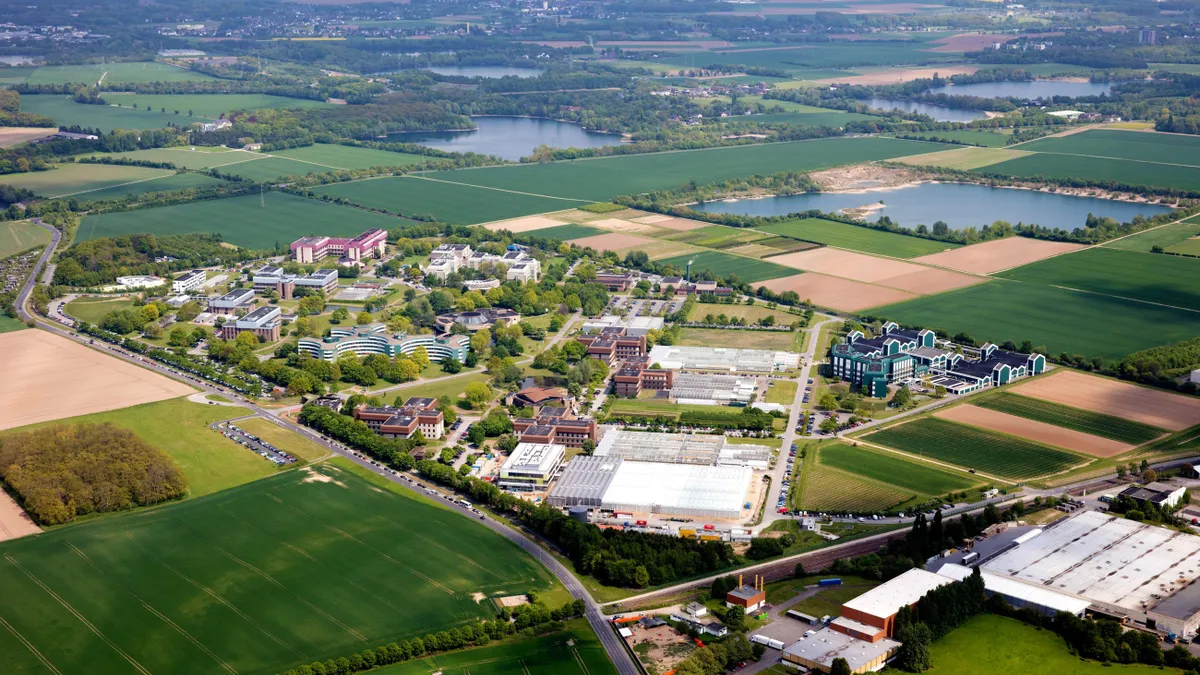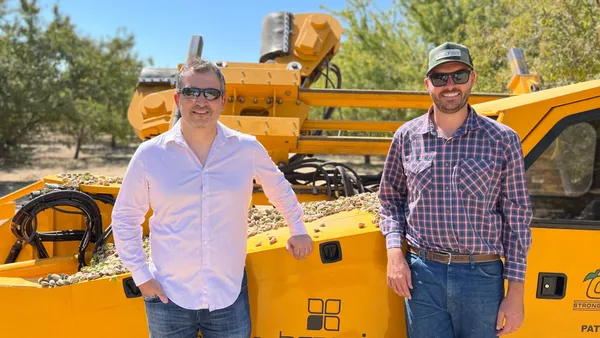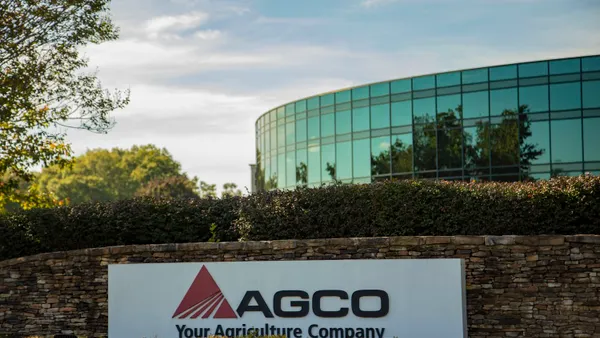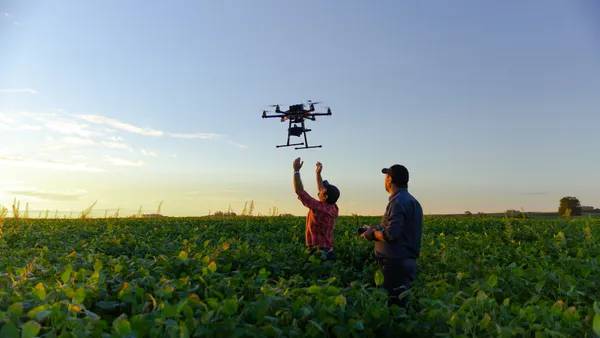Dive Brief:
-
Bayer plans to spend 220 million euros to advance production of more sustainable crop protection products in Europe, part of the biotech giant's efforts to break into the regenerative agriculture market.
-
The approximately $236 million investment will go toward a new product safety complex at its site in Monheim, Germany. Bayer said funding will support labs, offices and a greenhouse area, as well as enough space for approximately 200 employees.
-
The project, slated for completion in 2026, focuses on developing and bringing crop protection products to market that reduce agriculture's environmental impact. This is Bayer’s single largest crop protection investment in Germany since the founding of its Monheim campus in 1979.
Dive Insight:
Big brands such as Nestle, Cargill, PepsiCo, ADM and others have committed to regenerative agriculture projects that support farmers as they adopt and implement more sustainable farm practices.
“Looking into the future, we must radically transform today’s farming systems and switch to regenerative agriculture practices that produce more with less, while restoring more,” Robert Reiter, head of research and development at Bayer’s crop science division, said in a statement.
Bayer said its expansion of the Monheim campus will strengthen the company’s efforts to become a major contributor in regenerative agriculture by developing crop protection products that have better environmental profiles than the ones already available in the market.
The investment is also a commitment to Europe as a base of operations. Over the past three years, Bayer has invested 180 million euros, or about $193 million, to its Dormagen, Germany, location to expand crop protection production capacities.
The facility will use a combination of data science, early safety screenings, modeling and artificial intelligence to create the next generation of crop protection products, the biotech giant said.
Earlier this summer, Bayer said it will invest more in products that support regenerative agriculture, a move with the potential to double the crop science division’s market. Meanwhile, sales of glyphosate-based herbicides are declining amid lawsuits and regulations against the controversial chemical.
In July, Europe’s food safety regulator indicated that glyphosate was safe to use in agriculture, inching the commission closer to approving the chemical for markets in major countries.











